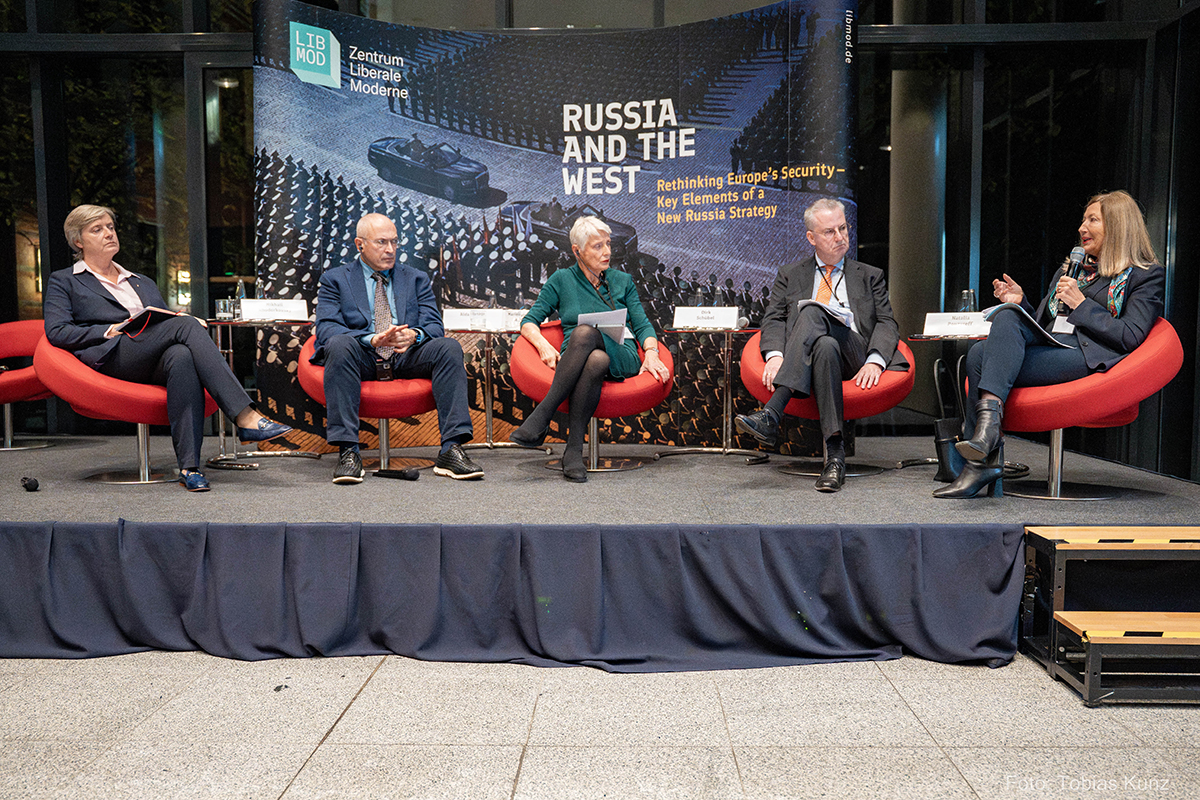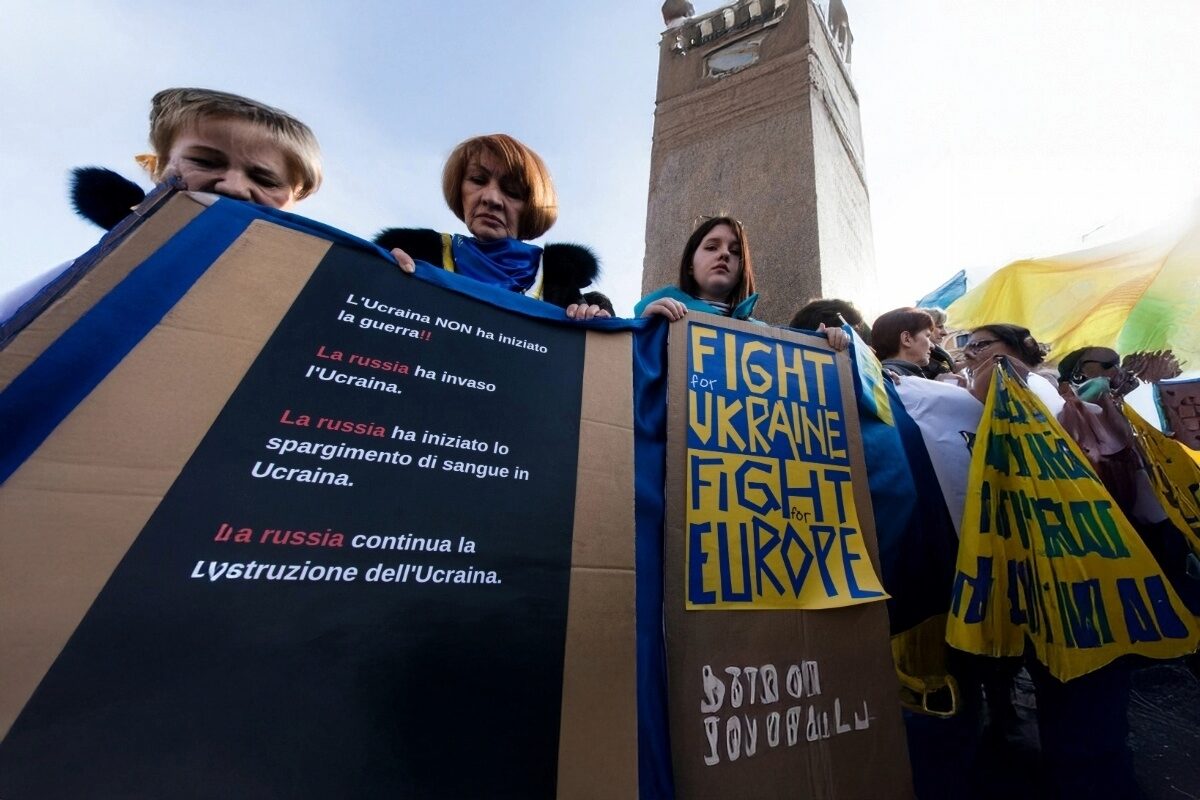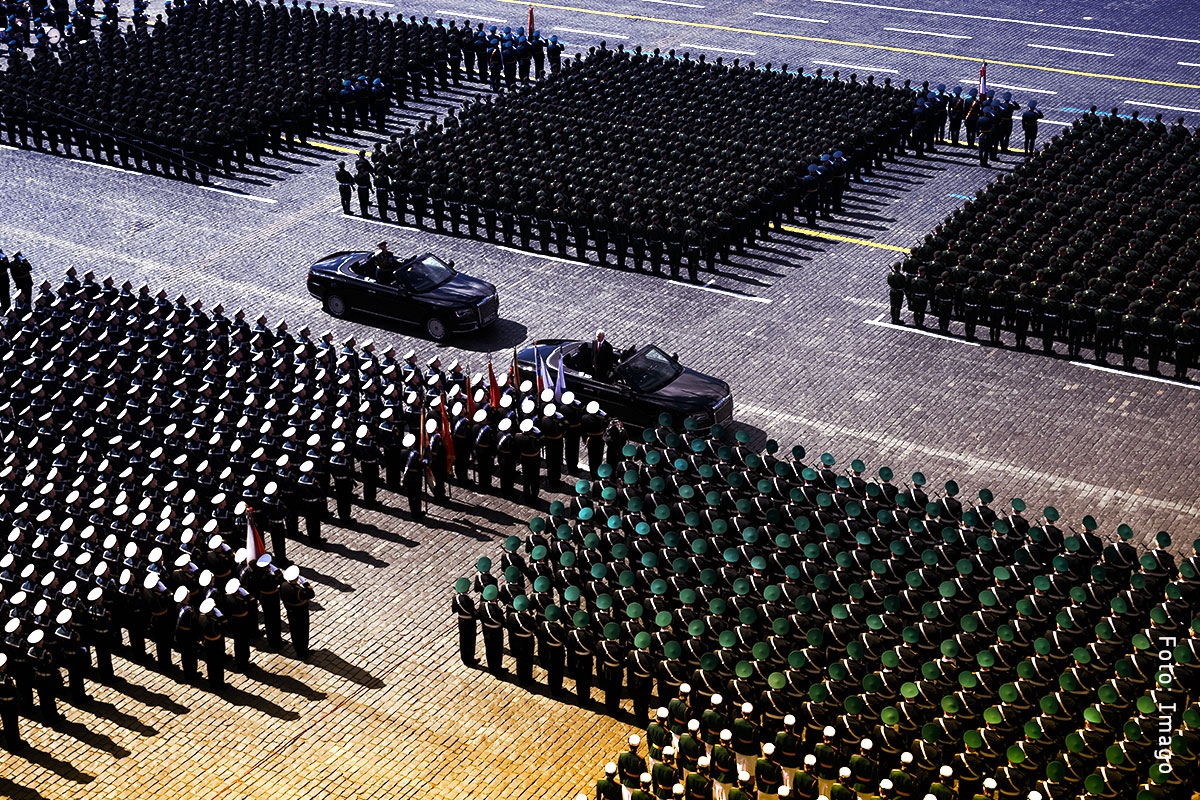Can Poland and Germany Align their Russia Policies?

Małgorzata Kosiura-Kaźmierska, Agnieszka Bryc, Ambassador Elbling and Ralf Fücks (left to right)
For many years, Poland and Germany pursued different policies regarding Russia and Ukraine. While Warsaw advocated harsher sanctions against Moscow and more support for Kyiv, Berlin was traditionally more reluctant. Despite Zeitenwende, differences linger. Can the two countries synchronize their approach? This was the essence of our recent public discussion in Warsaw, held jointly with the Foundation for Polish-German Cooperation.
After nearly two years of Russia’s full-scale invasion of Ukraine, the Putin regime shows resilience to political and economic pressure, dashing hopes that the war would end soon. Because of this, the Polish panelists were adamant that the West needs to do more. “We can change the situation overnight if we are committed”, Polish Foreign Ministry official Małgorzata Kosiura-Kaźmierska said. She added that the West needs to show that it is more determined than Russia and that Poland and Germany were the crucial countries to do that: “Let’s just lead by example!” she demanded.
German Ambassador Viktor Elbling defended the German government’s policies and dismissed criticism from the audience that despite Chancellor Olaf Scholz’ Zeitenwende Berlin was doing too little, too late. He argued that German aid to Ukraine was “substantial” and that Berlin and Warsaw were on the same page when it comes to helping Kyiv.
Thus, it was LibMod director Ralf Fücks who criticized the Scholz’ formula “Russia must not win and Ukraine must not lose”. The ongoing German ambiguity with regard of the outcome of the war reflects fear of escalation and mistrust in our own abilities, he argued. German military support for Ukraine remains restricted by fear. “If we send (such) a message of weakness in this conflict we will send a message to autocracies all over the world”, Fücks warned.
Agnieszka Bryc, a prominent Polish international relations expert, called for a strategy of deterrence and for clear signals that the West will talk only to a regime other than Putin’s. “We should not be afraid of Russia’s destabilization, because only a crisis can bring about change,” she stressed, a viewpoint that is widespread in the Polish foreign policy community.
Bryc also said that Russia’s war against Ukraine has increased the political weight of the Eastern countries within Europe. Whether this will enable Warsaw to effectively influence policymakers in Berlin remains to be seen.

Did you like this article? If yes, you can support the independent editorial work and journalism of LibMod via a simple donation tool.
Donate via PayPal
![]()
We are recognized as a non-profit organization, accordingly donations are tax deductible. For a donation receipt (necessary for an amount over 200 EUR), please send your address data to finanzen@libmod.de
Related topics
order Newsletter
Stay tuned with our regular newsletter about all our relevant subjects.





